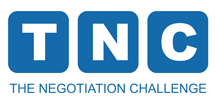Preparation in negotiation refers to the process of gathering, organizing, and analyzing relevant information and resources to be well-equipped for a negotiation. It is a critical phase before engaging in any negotiation where parties plan and strategize their approach to achieve their goals effectively.
Key aspects of preparation in negotiation include:
- Understanding Objectives: Clearly defining your goals and objectives for the negotiation. This includes knowing what you want to achieve, your priorities, and your desired outcomes.
- Gathering Information: Collecting relevant data, facts, and figures about the subject matter of the negotiation, as well as information about the other party, their interests, and potential areas of agreement or conflict.
- Assessing Interests and Positions: Distinguishing between the other party’s interests (underlying needs and motivations) and their stated positions (demands or requests). Understanding their interests helps in crafting mutually beneficial solutions.
- SWOT Analysis: Conducting a SWOT (Strengths, Weaknesses, Opportunities, Threats) analysis of your own position and that of the other party to identify strengths to leverage and weaknesses to address.
- Setting Limits and Walk-Away Points: Establishing your negotiation limits, such as the lowest price you are willing to accept or the highest price you are willing to pay. Determining your walk-away point, beyond which you will not continue the negotiation.
- Developing BATNA: Defining your Best Alternative to a Negotiated Agreement (BATNA), which represents the course of action you will take if the negotiation does not lead to a satisfactory outcome. A strong BATNA provides leverage and improves negotiation power.
- Identifying Concession Strategies: Planning how and when you will make concessions during the negotiation to create value and build rapport with the other party.
- Analyzing the Other Party’s Perspective: Trying to understand the other party’s interests, objectives, and constraints, as well as anticipating their likely negotiation strategies.
- Building a Communication Strategy: Preparing how you will present your arguments, proposals, and information during the negotiation to effectively communicate your position.
- Role Play and Rehearsal: Practicing negotiation scenarios through role play or simulations to refine your negotiation skills and responses.
Effective preparation is key to a successful negotiation. It allows you to approach the negotiation with confidence, adaptability, and a clear understanding of your own interests and the interests of the other party. By investing time and effort in preparation, negotiators increase their chances of achieving favorable outcomes and building constructive relationships with the other party.
